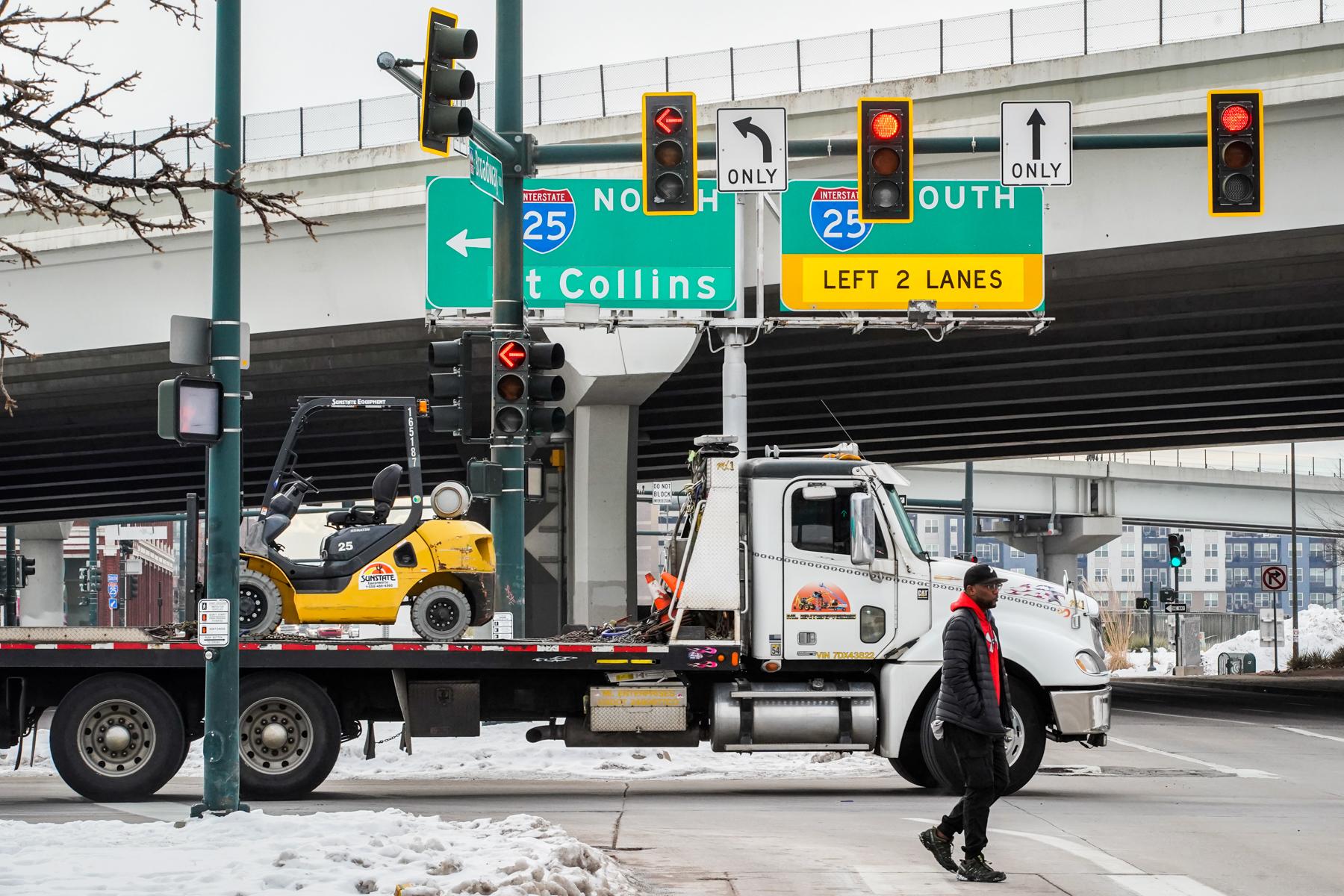The Denver Department of Transportation and Infrastructure announced Tuesday that it intends to add additional pedestrian and bicycle safety improvements to a controversial project that would rebuild the interchange of Interstate 25 and Broadway.
Neighborhood activists, multimodal transportation advocates, members of the department's own advisory board and even a City Council member have criticized the project in recent months, saying it will make an already dangerous area even more perilous for people trying to access the nearby RTD station.
The city has gradually been rebuilding streets in the area for the better part of a decade after receiving federal approval in 2008. The next phase up for construction was set to widen several streets and build a new on ramp for southbound I-25 traffic in the name of congestion relief. A future phase called for the demolition of six homes to accommodate a new northbound I-25 on ramp from Lincoln Street.
Now, some of those plans could be changing. A press release from the department said it was "exploring additional improvements" including:
- Engineering treatments to protect pedestrians by slowing right-hand turns from Broadway onto Ohio Avenue.
- A new east-west pedestrian crossing at Broadway on the south side of Ohio Avenue.
- Installation of 10′-12′ foot multi-use paths on both sides of Kentucky Avenue, Broadway, Ohio Avenue and the east side of Bannock Street within the current project limits.
- The removal of one northbound lane of South Lincoln Street from Ohio Avenue to the traffic signal to the north (approximately 600 feet) to shorten the pedestrian crossing distance and provide a wider buffer for pedestrians on the east side of Lincoln.
- Increasing the visibility of pedestrians with a raised crosswalk where cars access I-25 Southbound from Broadway.

"These are some substantial changes," DOTI deputy manager of internal and external affairs Nicholas Williams told the department's advisory board Tuesday. "I know there was concern about the pace and even lack of communication around it and I certainly understand that. But I just want to make sure folks know, we were not twiddling our thumbs. These are some pretty substantial improvements."
One member of the advisory board, Julie Reiskin, co-executive director of the Colorado Cross-Disability Coalition, noted the less-than-certain language in the press release and asked Williams whether the changes would happen or not.
"It's much more than 'we are thinking about it.' And you can blame a lawyer for having written that," Williams replied. "We have strong confidence that these will be executed."
Two neighborhood critics of the project said they still had questions about the specific changes, but were thankful the city is now listening to their feedback.
"The DOTI project team is actively listening, collaborating, and working with us to improve the project," Brittany Spinner and Amy Kenreich wrote in an email.
Jake Cohen, who co-chairs the department's advisory board, said the changes were what he and other board members were hoping to see.
"The department appears to have taken this seriously and incorporated real safety enhancements that better reflect the city's safety and climate change objectives," he wrote in a statement to Denverite.
The department is also now considering abandoning the future, as of yet unfunded, phase of the project that would demolish nearby homes, the press release said. That will take coordination with state and federal transportation officials because the project has received federal funding and approval for the existing design.
But in an interview with CPR News in December 2022, Stephanie Pollack, then-acting administrator of the Federal Highway Administration, said federal approvals for local projects "do not last forever."
"If there is a case for reconsideration, we'll at least think about it," Pollack said.
The city anticipates the next phase of construction will begin later this year.














